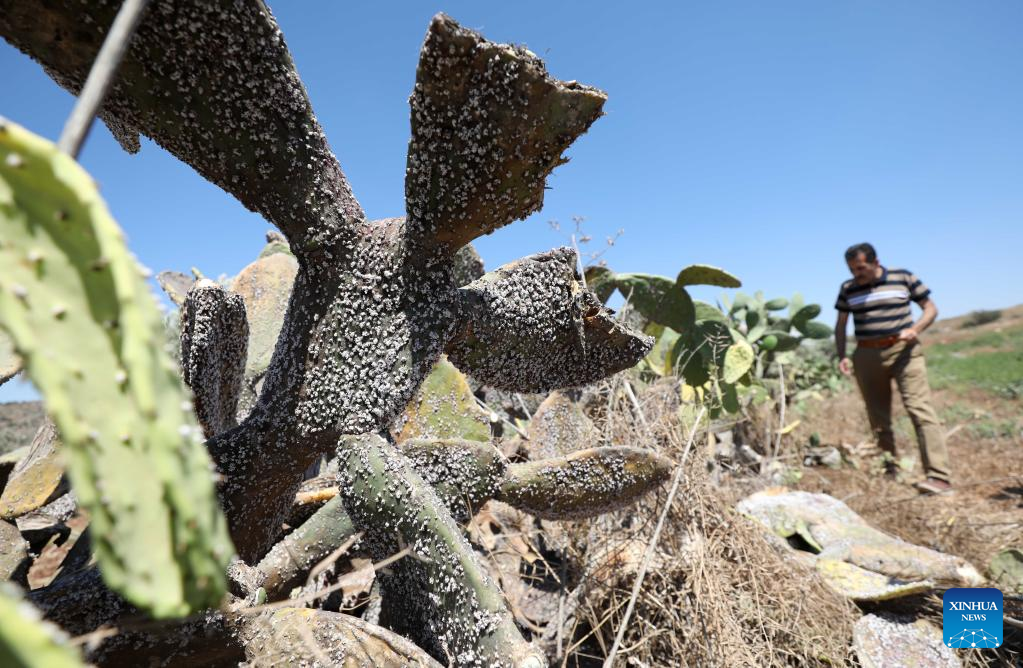
An agricultural engineer inspects a prickly pear at a farm in Faqqu'a village, northeast of West Bank city of Jenin, on June 29, 2022. For the second year in a row, Muayyad Abbas, a local farmer from Faqqu'a village, fears he might lose the prickly pear harvest season due to the cochineal bug outbreak that is killing his produce. (Photo by Ayman Nobani/Xinhua)
by Sanaa Kamal
RAMALLAH, July 4 (Xinhua) -- For the second year in a row, Muayyad Abbas, a local farmer from Faqqu'a village northeast of West Bank city Jenin, fears he might lose the prickly pear harvest season due to the cochineal bug outbreak that is killing his produce.
The 47-year-old father of three told Xinhua that he used to rely on the profits from selling those cactus fruits that grow on his four-dunam (about 0.99 acres) land, which is his main income source in summer.
In the past, the farmer says, he used to make about 2,500 U.S. dollars each summer after collecting at least six tons of prickly pears, which helps him to keep his family afloat.
"This year, unfortunately, I will not be able to reap any profits if I lose the current season as about 80 percent of my trees were infected with the cochineal bugs," the farmer lamented.
Every year, the harvest season of prickly pears begins in early July and continues until September in the Palestinian territories. The fruit is widely popular during the summer season with its sweet taste and nutritional benefits.
In an attempt to protect his harvest from perishing, Abbas spent about three months caring for the prickly pear trees by spraying natural insecticides such as vinegar and lemon, but all those attempts were unsuccessful.
"I am facing a great misfortune because I do not know how to support my family in the coming months," he said.
Abbas' field is among the 5,000-dunam (about 1,235 acres) of land in Palestinian territories that produces 7,500 tons of prickly pears every year, according to Shady Saleh, director of pest control department in the General Administration of the West Bank Plant Agency.
"About 70 percent of the cactus trees were infected with the cochineal pest, which caused a decline in the production of prickly pears," Saleh told Xinhua, noting that farmers may have to uproot trees to get rid of the accumulated crisis.
He said now the pest has spread to all areas of the West Bank, and that his ministry may resort to uprooting all cactus trees from the West Bank and planting them again if all attempts to limit the spread of the pest fail. ■
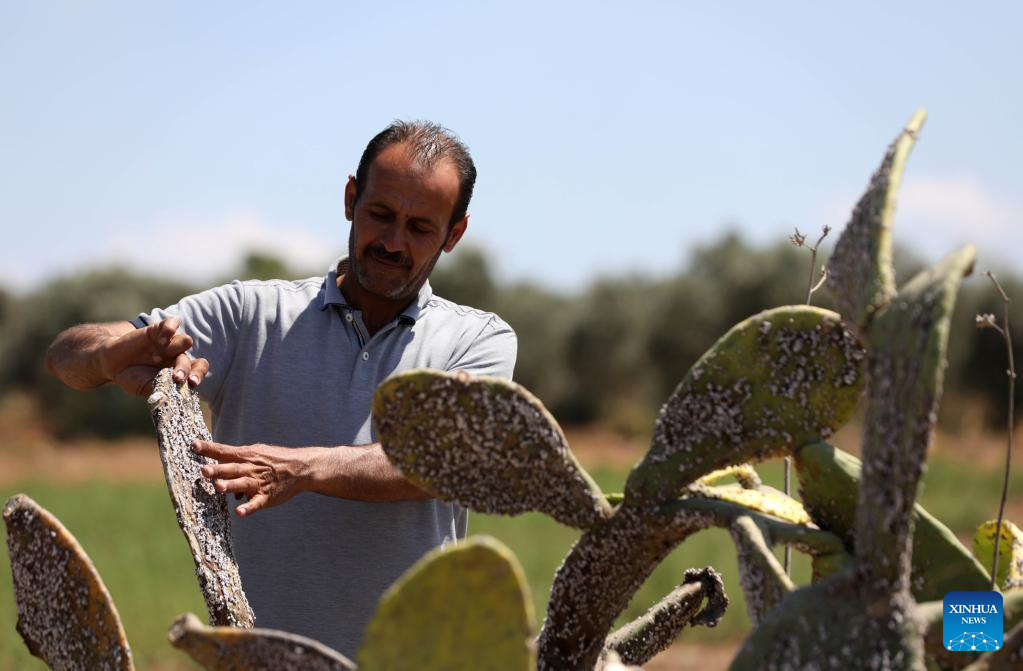
A farmer inspects a prickly pear at a farm in Faqqu'a village, northeast of West Bank city of Jenin, on June 29, 2022. For the second year in a row, Muayyad Abbas, a local farmer from Faqqu'a village, fears he might lose the prickly pear harvest season due to the cochineal bug outbreak that is killing his produce. (Photo by Ayman Nobani/Xinhua)
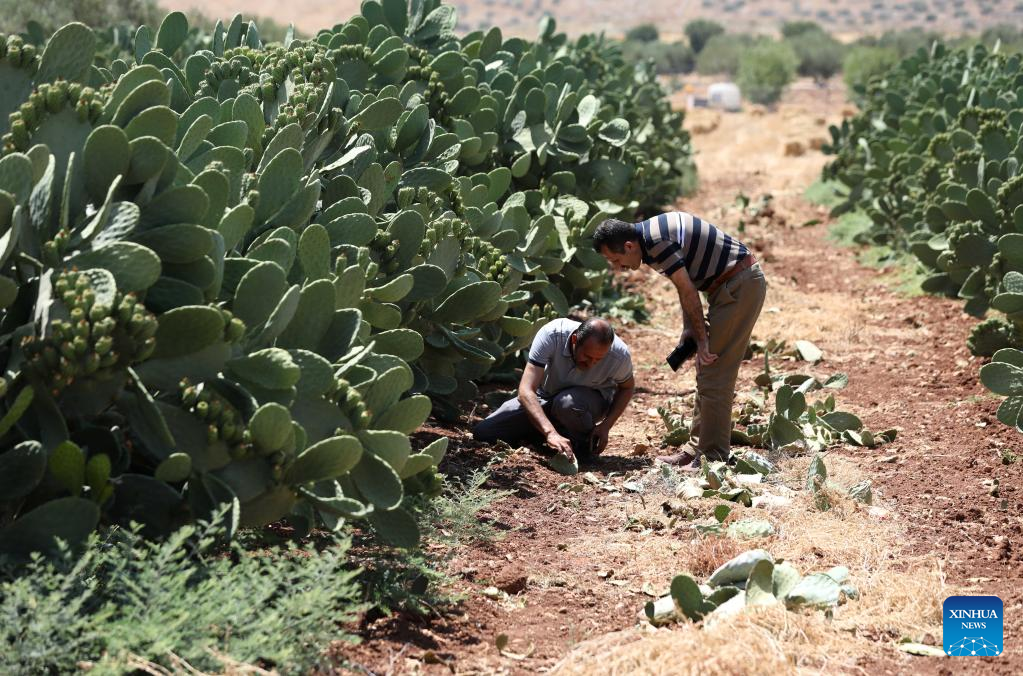
A farmer and an agricultural engineer inspect a prickly pear at a farm in Faqqu'a village, northeast of West Bank city of Jenin, on June 29, 2022. For the second year in a row, Muayyad Abbas, a local farmer from Faqqu'a village, fears he might lose the prickly pear harvest season due to the cochineal bug outbreak that is killing his produce. (Photo by Ayman Nobani/Xinhua)
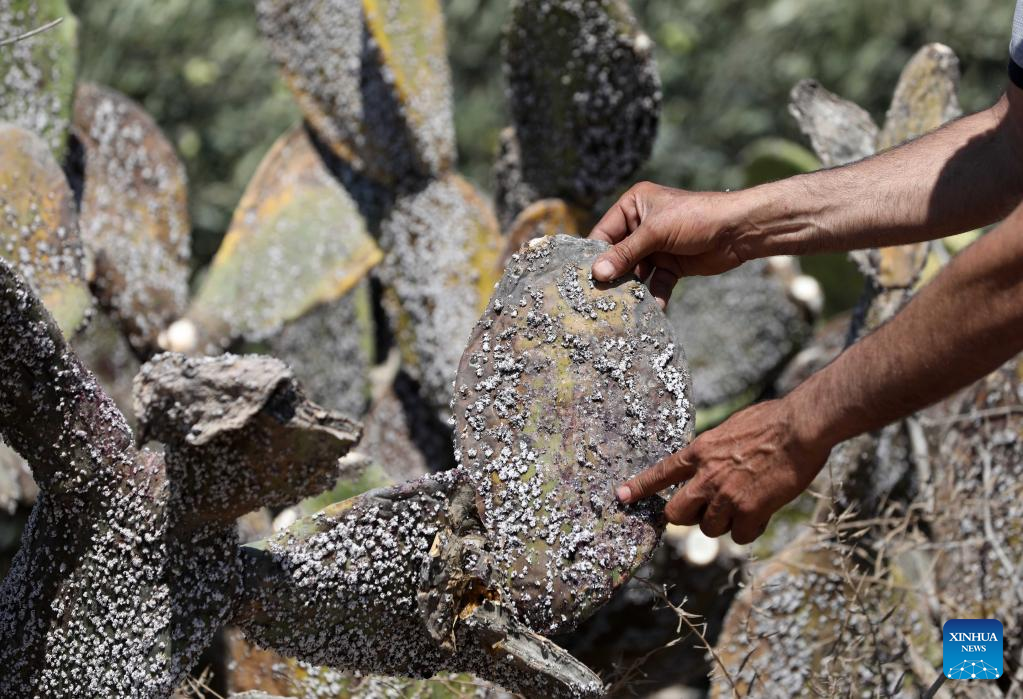
A farmer inspects a prickly pear at a farm in Faqqu'a village, northeast of West Bank city of Jenin, on June 29, 2022. For the second year in a row, Muayyad Abbas, a local farmer from Faqqu'a village, fears he might lose the prickly pear harvest season due to the cochineal bug outbreak that is killing his produce. (Photo by Ayman Nobani/Xinhua)
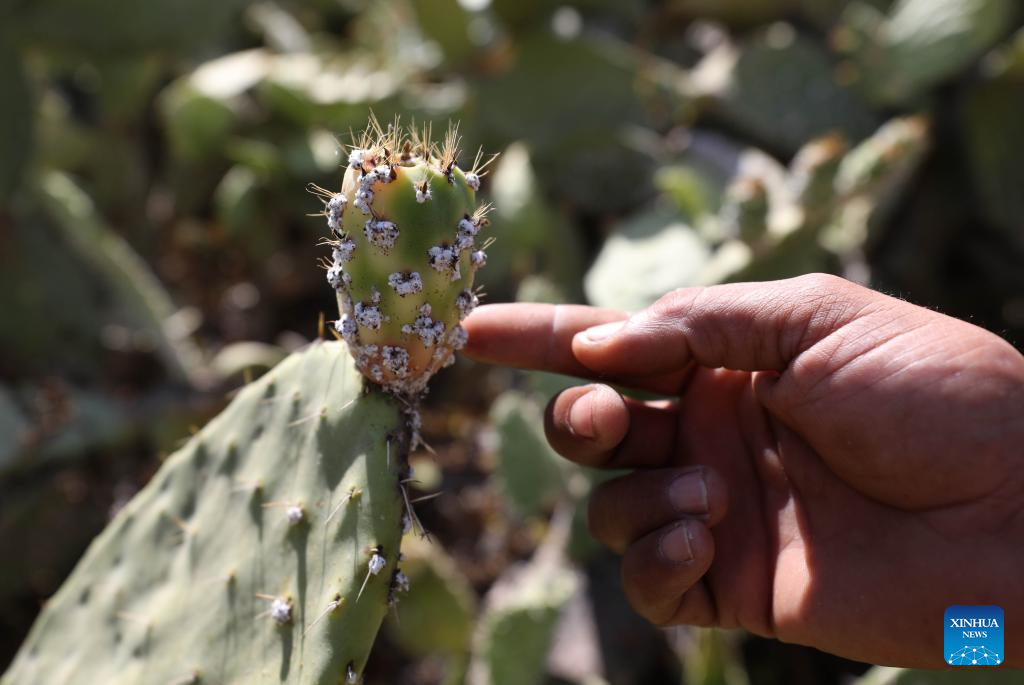
A farmer inspects a prickly pear at a farm in Faqqu'a village, northeast of West Bank city of Jenin, on June 29, 2022. For the second year in a row, Muayyad Abbas, a local farmer from Faqqu'a village, fears he might lose the prickly pear harvest season due to the cochineal bug outbreak that is killing his produce. (Photo by Ayman Nobani/Xinhua)



